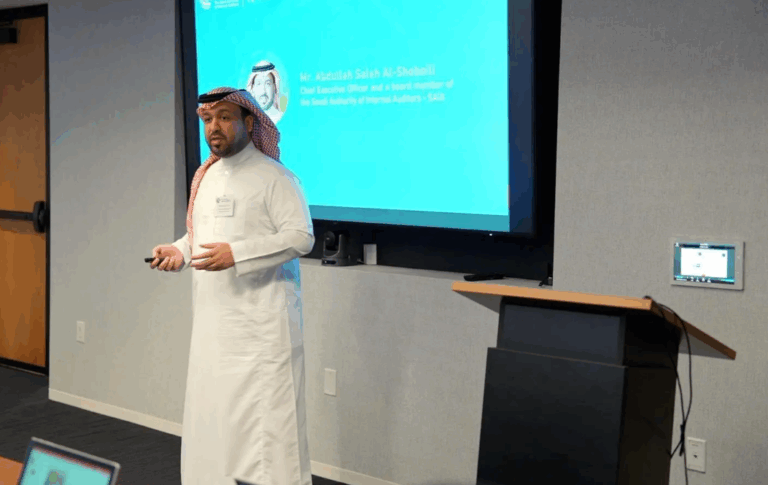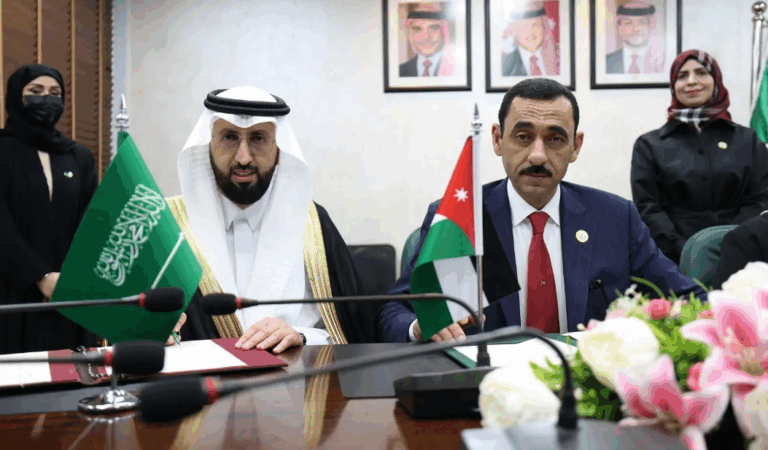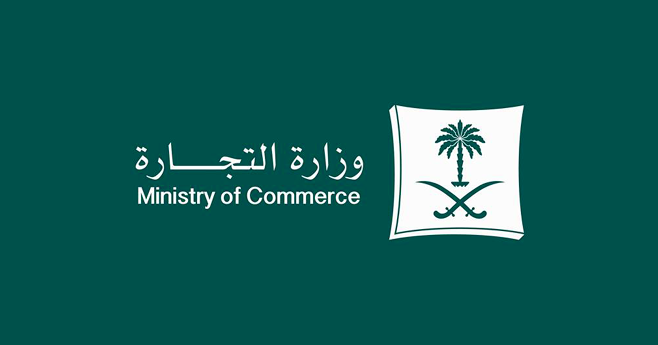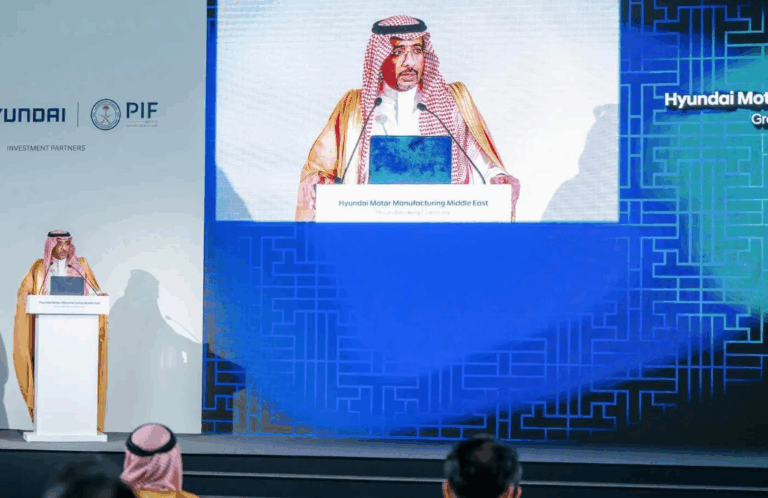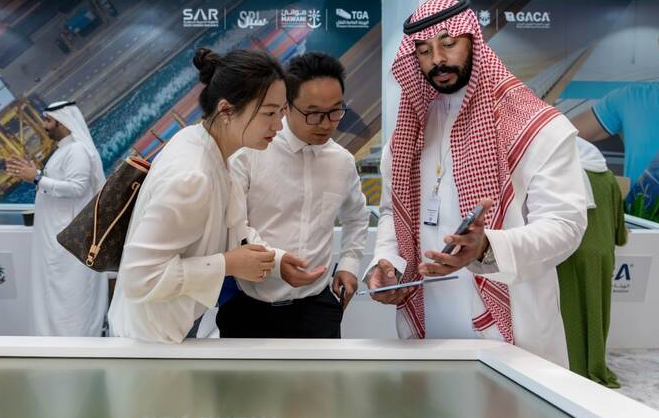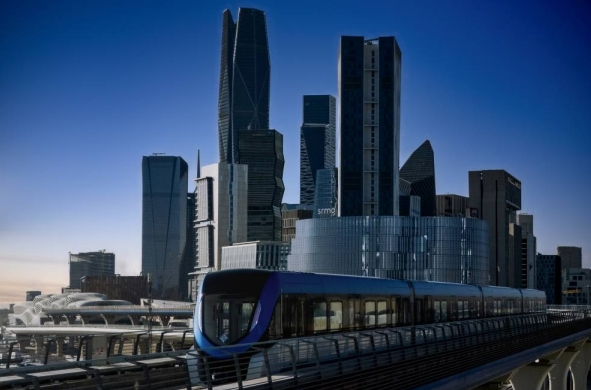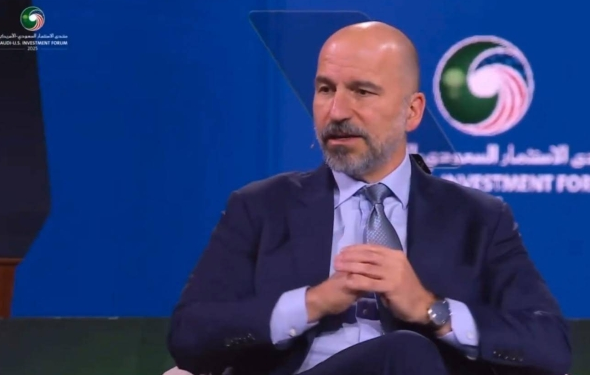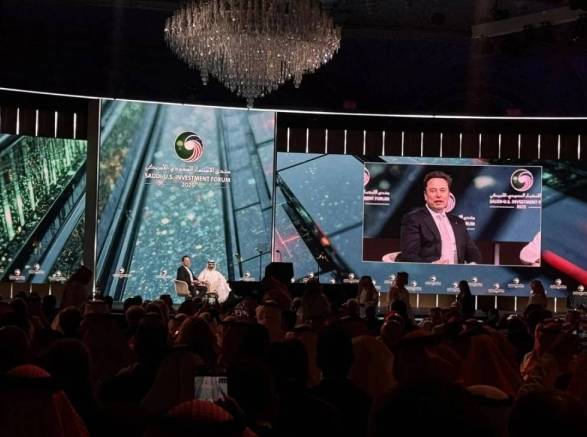**Título:**
*MENA’s First Circular Polymers from Plastic Waste*
**Intro:**
Aramco, TotalEnergies, and SABIC have pioneered the Middle East and North Africa’s first conversion of plastic waste-derived oil into ISCC+-certified circular polymers. Processed at Saudi Arabia’s SATORP refinery and PETROKEMYA facilities, the project establishes a domestic recycling value chain, tackling non-recyclable plastics and advancing circular economy goals.
**Factbox (50 palabras):**
– **Collaboration:** Aramco, TotalEnergies, SABIC.
– **Process:** Plastic pyrolysis oil transformed into certified polymers.
– **Certification:** ISCC+ ensures traceability.
– **Goals:** TotalEnergies targets 30% circular polymers by 2030; SABIC aims for 1M metric tons of TRUCIRCLETM products.
– **Impact:** Supports Saudi Vision 2030 and global plastic waste reduction via AEPW alliance.
**Title:** Pioneering Sustainability: Aramco, TotalEnergies, and SABIC Lead MENA’s First Circular Polymer Revolution
—
**Introduction**
In a groundbreaking leap for the Middle East and North Africa (MENA) region, energy giants **Aramco**, **TotalEnergies**, and **SABIC** have achieved a world-class sustainability milestone: transforming plastic waste-derived oil (PDO) into **ISCC+-certified circular polymers**. This historic initiative, the first of its kind in MENA, marks a transformative step toward a circular economy, aligning with Saudi Vision 2030’s sustainability goals and global efforts to combat plastic pollution.
—
### **Collaboration & Innovation: The Process Unveiled**
The project leverages cutting-edge technology and cross-industry expertise:
1. **Plastic Pyrolysis Oil Production**: Non-recyclable plastic waste is converted into pyrolysis oil (PDO), bypassing the limitations of traditional mechanical recycling.
2. **Refinement at SATORP**: The PDO is processed at the **SATORP refinery** in Jubail, Saudi Arabia—a joint venture between Aramco and TotalEnergies.
3. **Circular Polymer Creation**: SABIC’s subsidiary, **PETROKEMYA**, uses the refined feedstock to produce certified circular polymers, validated for quality and sustainability.
This end-to-end collaboration establishes a domestic value chain for plastic waste recycling, turning environmental challenges into scalable solutions.
—
### **The Role of ISCC+ Certification: Trust Through Traceability**
The **International Sustainability and Carbon Certification (ISCC+)** ensures transparency across the entire process, from feedstock origin to final product. All facilities involved—SATORP, Aramco’s Ju’aymah NGL Fractionation Plant, and PETROKEMYA—achieved ISCC+ accreditation, reinforcing credibility and enabling global market access for circular polymers.
—
### **Executive Insights: Vision for a Sustainable Future**
– **Mohammed Y. Al Qahtani (Aramco)**:
*“This project underscores the petrochemical sector’s role in driving sustainable innovation. By repurposing existing infrastructure, we aim to scale cost-effective circular solutions while advancing toward net-zero emissions by 2050.”*
– **Bernard Pinatel (TotalEnergies)**:
*“This initiative is pivotal to our goal of producing 30% circular polymers by 2030. It reflects our commitment to solving plastic waste challenges and achieving net-zero alongside society by 2050.”*
– **Sami Al-Osaimi (SABIC)**:
*“As a leader in chemicals, SABIC is dedicated to eliminating plastic landfills. Our TRUCIRCLE™ initiative targets 1 million metric tons of circular products by 2030, fostering collaboration across the value chain.”*
—
### **Broader Impact & Future Goals**
– **Net-Zero Ambitions**: Aramco aims for net-zero Scope 1 and 2 emissions by 2050, while TotalEnergies emphasizes multi-energy solutions.
– **Scaling Circularity**: The project demonstrates how excess refinery capacity can be repurposed to create low-carbon products.
– **Alliance to End Plastic Waste (AEPW)**: As founding members, SABIC and TotalEnergies collaborate globally to tackle waste management challenges.
—
**Conclusion: A Blueprint for Global Sustainability**
This milestone not only addresses plastic pollution but also sets a regional precedent for circular economy innovation. By uniting technology, infrastructure, and visionary partnerships, Aramco, TotalEnergies, and SABIC are reshaping the future of plastics—proving that economic growth and environmental stewardship can coexist. As the world transitions toward net-zero, such initiatives offer a replicable model for turning waste into worth, one polymer at a time.
—
**Tags**: #CircularEconomy #Sustainability #PlasticRecycling #SaudiVision2030 #NetZero #ISCC+ #Aramco #TotalEnergies #SABIC #MENAInnovation
**Meta Description**: Discover how Aramco, TotalEnergies, and SABIC pioneered MENA’s first ISCC+ certified circular polymers from plastic waste—driving Saudi Vision 2030 and global sustainability goals.
—
This WordPress-ready content balances technical detail with engaging storytelling, optimized for SEO and reader accessibility. Let me know if you need adjustments! 🌍♻️
**15 FAQs on Aramco, TotalEnergies, and SABIC’s Circular Polymer Initiative**
1. **What makes this plastic-to-circular-polymer project in Saudi Arabia groundbreaking?**
It’s the first Middle Eastern initiative to convert plastic pyrolysis oil into ISCC+-certified circular polymers, addressing non-recyclable plastics and advancing Saudi Arabia’s domestic recycling value chain.
2. **How does plastic pyrolysis oil (PDO) enable circular polymer production?**
PDO, derived from plastic waste, serves as feedstock processed at SATORP refinery and PETROKEMYA, replacing fossil fuels to create certified circular polymers, reducing reliance on virgin materials.
3. **Why is the SATORP refinery critical to this project?**
Jointly operated by Aramco and TotalEnergies, SATORP processes PDO into refinery-grade materials, enabling downstream production of circular polymers at PETROKEMYA, leveraging existing infrastructure for scalability.
4. **What does ISCC+ certification signify for this initiative?**
ISCC+ ensures traceability and transparency of recycled feedstock, validating the environmental claims of circular polymers and supporting market trust in their sustainable origins.
5. **How does this project align with Saudi Vision 2030?**
It supports economic diversification and sustainability goals by fostering a local circular economy, reducing plastic waste, and positioning Saudi Arabia as a leader in green chemistry.
6. **What environmental benefits does this recycling method offer?**
It diverts non-recyclable plastics from landfills/incineration, reduces carbon emissions via circular feedstock, and supports net-zero goals by lowering reliance on fossil-based polymers.
7. **Which recycling challenges does this project overcome?**
It addresses limitations of mechanical recycling by handling mixed/non-sorted plastics, converting low-value waste into high-quality polymers, and scaling via existing refinery infrastructure.
8. **How will TotalEnergies achieve 30% circular polymer production by 2030?**
Through partnerships like this, advanced pyrolysis, and integrating recycled feedstocks into global refining networks, aligning with TotalEnergies’ net-zero roadmap and circular economy investments.
9. **What is SABIC’s TRUCIRCLE™ initiative, and how is it connected?**
TRUCIRCLE™ aims to produce 1 million metric tons of circular products by 2030. This project contributes by certifying polymers through innovative waste-to-feedstock processes.
10. **How does collaboration amplify the circular economy impact?**
Aramco, TotalEnergies, and SABIC combine expertise in refining, petrochemicals, and recycling to create a closed-loop system, enhancing resource efficiency and reducing waste across the value chain.
11. **What are Aramco’s net-zero targets, and how does this initiative help?**
Aramco aims for net-zero Scope 1/2 emissions by 2050. Circular polymers reduce emissions via recycled feedstocks and align with decarbonizing downstream operations.
12. **What role does the Alliance to End Plastic Waste (AEPW) play?**
As AEPW founders, SABIC and TotalEnergies leverage this platform to share technologies and scale global waste solutions, supporting projects like this Saudi initiative.
13. **How does the project optimize existing infrastructure?**
By retrofitting SATORP, Ju’aymah NGL Plant, and PETROKEMYA for circular feedstocks, it minimizes capital costs and accelerates scalable production of certified polymers.
14. **How do circular polymers differ from traditional plastics?**
Circular polymers use recycled or bio-based feedstocks, retain virgin-like quality, and reduce lifecycle emissions, whereas traditional plastics rely solely on fossil fuels.
15. **What future expansions are planned for this initiative?**
Partners aim to scale PDO processing, explore new pyrolysis technologies, and expand ISCC+ certification to other facilities, driving Saudi Arabia’s leadership in circular polymer innovation.
**CTA (Call to Action):**
*Join the Circular Revolution!*
Explore how innovative collaborations can transform plastic waste into sustainable solutions. Partner with industry leaders and adopt circular economy practices in your operations. Visit Aramco, TotalEnergies, and SABIC to learn how you can contribute to a zero-waste future. Together, let’s turn plastic challenges into opportunities—start your circular journey today!
**Conclusión destacada:**
This milestone by Aramco, TotalEnergies, and SABIC marks a transformative leap for the MENA region in tackling plastic waste. By converting non-recyclable plastics into ISCC+-certified circular polymers, the project not only addresses environmental challenges but also aligns with Saudi Vision 2030’s sustainability goals. The collaboration showcases the power of cross-sector partnerships, leveraging existing infrastructure and advanced recycling technologies to create scalable, low-carbon solutions. As these circular polymers enter global markets, they set a precedent for the petrochemical industry to prioritize resource efficiency, innovation, and net-zero ambitions.
**Agradecimiento:**
We extend our gratitude to Aramco, TotalEnergies, and SABIC for their pioneering leadership in advancing the circular economy. Special recognition to the teams at SATORP, PETROKEMYA, and the Ju’aymah NGL Fractionation Plant for achieving ISCC+ certification—a testament to their commitment to transparency and sustainability. Thanks also to the Alliance to End Plastic Waste (AEPW) for fostering global collaboration. To our readers: Your support for sustainable innovation drives progress. Let’s continue championing solutions that protect our planet for future generations. 🌍♻️

